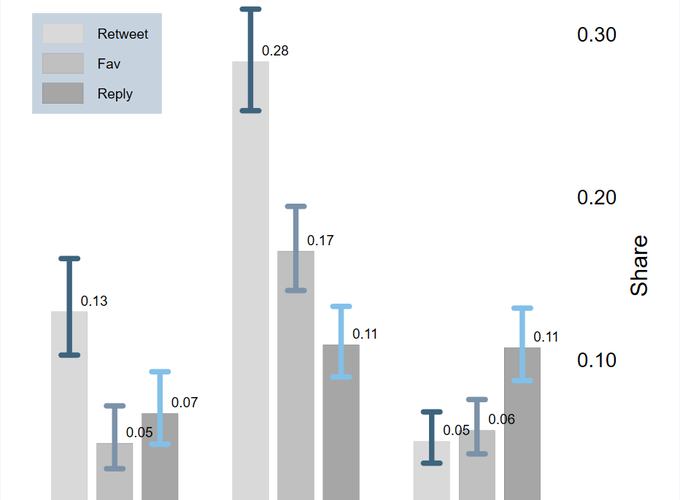Abstract
When do users share fact-checks on social media? We describe a survey experiment conducted during the 2019 election in Argentina measuring the propensity of voters to share corrections to political misinformation that randomly confirm or challenge their initial beliefs. We find evidence of selective sharing—the notion that individuals prefer to share pro-attitudinal rather than counter-attitudinal fact-checks. This effect, however, is conditioned by the type of adjudication made by fact-checkers. More specifically, in line with motivated reasoning processes, respondents report a higher intent to share confirmations (i.e. messages fact-checked with a “true” rating) compared with refutations (i.e. messages fact-checked with a “false” rating). Experimental results are partially confirmed with a regression discontinuity analysis of observational data of Twitter and replicated with additional experiments. Our findings suggest that fact-checkers could increase exposure to their verifications on social media by framing their corrections as confirmations of factually correct information.
